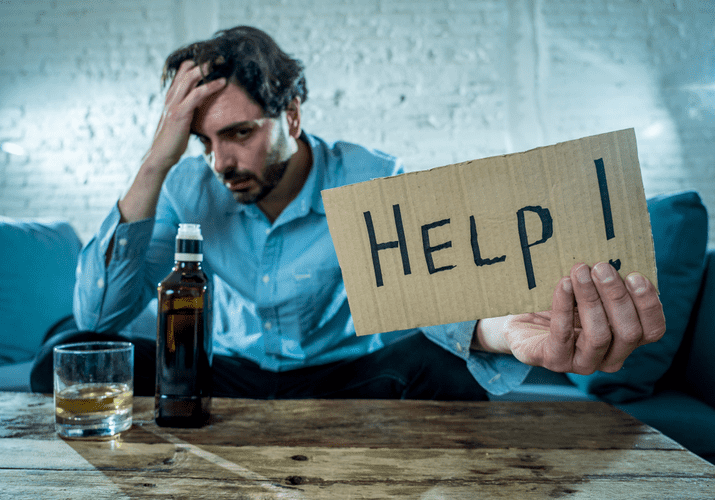Sober living
Alcohol And Diabetes How Does Alcohol Affect People With Diabetes?
Research also indicates that a person who has experienced one blackout is more likely to have blackouts in the future. The long-term effects of a blackout are unknown, but they may cause the brain to be more susceptible to memory losses in the future. Drinking too much alcohol can be especially concerning if you have ever used glucagon to treat hypoglycemia.
Other Brain Regions Involved in Alcohol-Induced Memory Impairments

Participants were asked to remain in the laboratory until their BrAC had dropped below the Scottish driving limit (BrAC 0.22mg/l, BAC 0.05%) during which time they were offered soft drinks. In addition to abstaining from alcohol, moderation and pace are important to preventing https://starominskaja.ru/main/5005-v-rossii-vstupaet-v-silu-zapret-na-kurenie-v-uchebnyh-zavedeniyah-ostanovkah-i-vokzalah.html blackouts. Avoid binge drinking, which is defined as consuming five or more drinks in about two hours for men, or four or more drinks for women. As you drink more alcohol and your blood alcohol level rises, the rate and length of memory loss will increase.

Learn more about smart insulin pen
There were no correlations found between sleep and recall accuracy, in contrast we found weak evidence in support of the null hypothesis in all tests conducted. More importantly, we still observed performance deficits in the after-MBO condition. Alcohol is suggested to impact sleep quality [43, 63], however, it is worth noting that measures of sleep quality are subjective, include qualitative https://www.novgaz-rzn.ru/nomer22092011_37/442.html components [see 43, 64], and by their very nature are likely to strongly correlate with sleep quantity. Future work may focus on quantitative measures of sleep quality affected by alcohol. These effects range in severity from momentary “slips” in memory to permanent, debilitating conditions. The frontal lobe also plays a role in short-term and long-term memory formation and recall.
Who is Most At Risk for Blacking Out?
- But blackouts are no laughing matter, according to expert researcher Dr. Marc Schuckit.
- In the early stages of type 2, the body is still able to produce insulin but is resistant to its effects.
- A person who is blacked out may also throw up while sleeping, which could lead to an increased risk of choking or suffocating.
- Although prevalence rates were typically around50%, one study reported a prevalence rate of only about 20%;however, this was a qualitative study examining how university students definebinge drinking (Clinkinbeard and Johnson,2013).
Glucagon is a hormone that raises blood sugars and is often used in people with type 1 diabetes or type 2 diabetes who take insulin when they are unable to swallow liquid or food because of low blood sugar symptoms. Shortly after drinking an alcoholic beverage (especially on an empty stomach), blood sugar levels may drop. That’s because the liver is busy processing the alcohol and not paying attention to blood sugar levels, so it stops releasing glucose. This article will examine how alcohol affects blood sugar levels and how people with diabetes can safely drink alcohol. As mentioned above, damage limited to the CA1 region of the hippocampus dramatically disrupts the ability to form new explicit memories (Zola-Morgan et al. 1986).
- This means that you may be less likely to make healthy food choices and/or limit portions when you drink alcohol.
- Monitoring blood glucose levels closely is an essential part of managing your diabetes in this situation.
- Furthermore, Verster [53] has suggested that a lack of sleep and detectable alcohol BAC% levels at time of testing could explain the mixed results in the literature [for example, 52, 54, 55], since a lack of sleep may inflate the strength of after binge-drinking effects on cognition.
- Most people with diabetes can drink alcohol, but it’s important to understand how alcohol impacts your blood sugars, as well as other health conditions you may have.
- Jellinek’s initial characterization of blackouts was based on data collected from a survey of Alcoholics Anonymous members.
Hopefully, future work will reveal more regarding the ways in which the effects of alcohol on multiple transmitter systems interact to disrupt memory formation. In classic studies of hospitalized alcoholics by Goodwin and colleagues (1969a,b), 36 out of the 100 patients interviewed indicated that they https://success-way.net/embracing-feedback-a-catalyst-for-personal-development/ had never experienced a blackout. In some ways, the patients who did not experience blackouts are as interesting as the patients who did. What was it about these 36 patients that kept them from blacking out, despite the fact that their alcoholism was so severe that it required hospitalization?

When Do Blackouts Occur?
As mentioned earlier in this article, poor food intake can lead to depleted glycogen levels. Furthermore, continued alcohol metabolism results in diminished gluconeogenesis. Both the depletion of glycogen and diminished gluconeogenesis lead to lower blood sugar levels. Because insulin restrains glucagon secretion, lower insulin secretion allows increased glucagon secretion, setting the stage for the development of ketoacidosis. Vomiting can lead to dehydration and a reduced blood volume, which, in turn, increases the levels of certain stress hormones in the blood called catecholamines.

